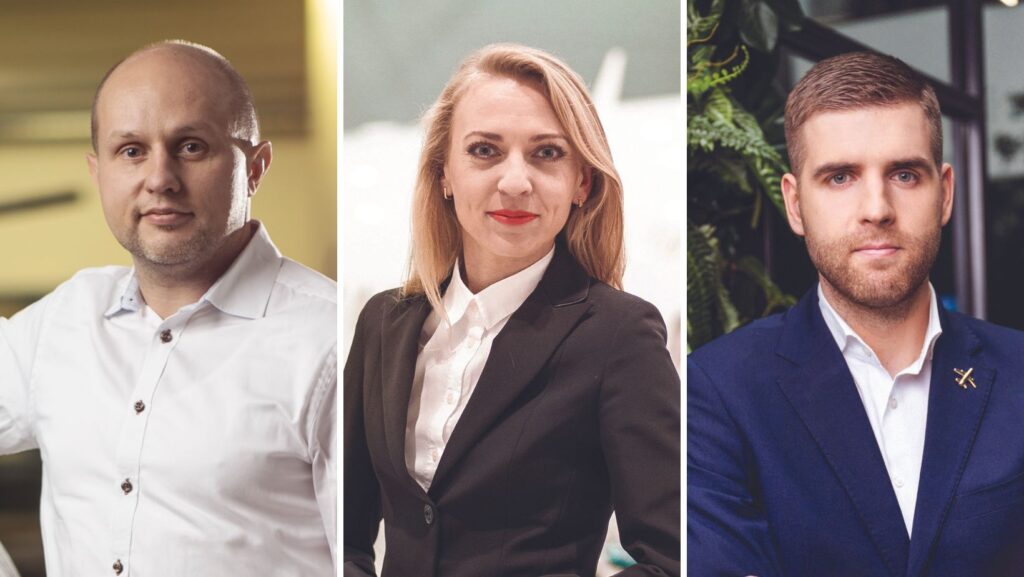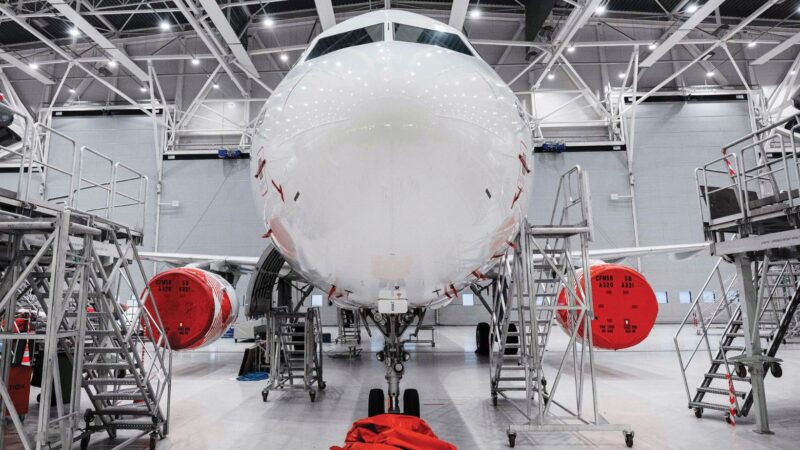Region Outlook: Observations of the BEER MRO market
MRO providers in Eastern Europe and the Baltic countries are on the rise. Two key companies discuss the region’s current status, its future potential and their own developments with Bernie Baldwin.
Analyses of major MRO markets around the world have, for many years, examined Europe as a single region. For certain purposes, that works, but the reality is that for many years, big players such as Lufthansa Technik, Air France Industries-KLM Engineering & Maintenance (AFI-KLM E&M) and SR Technics led the way.
Times change though, and sizeable players in Eastern Europe and the Baltic countries have brought competition to the market. Even within the area encompassed by that description – from the Baltics in the north to Bulgaria in the south – there are variations in the health of MRO businesses.
Observations in the markets
Inga Duglas, chief commercial officer at Magnetic Group – one of the aforementioned rapidly-growing players – has been taking a look at the current position of the MRO market in the Baltics and Eastern Europe region and assessing the expected activity over the next 12 months.
“Whether it’s the Baltics or Eastern Europe as a whole, MROs have been at the peak of their business,” says Duglas. “Similarly, there is also a high demand for line maintenance services. The main driver remains the need for more skilled staff. The cost-up trend will continue, coming from a shortage of trained technical personnel, growing material prices (though a slow-down tendency is evident, too), and higher investments needed for automation and efficiency solutions.
“On the other hand, high demand for flights and lease extensions will also impact the loading of MROs during the summer season,” Duglas adds. “Though our (Baltic) region presents similar proclivity, each MRO might take a different approach to the situation. For us, the foundation of the business has been cultivating commitment, lasting long-term relationships and partnerships with existing, past and new customers who share the same values. All of this resulted in balancing out any off-season fluctuations.”
Duglas’ colleague, Magnetic Group chief operating officer Jan Kotka adds his observation. “It’s no secret that, at present, all MROs are fully booked and increasingly busy with heavy checks. That applies to the Baltics and Eastern Europe region as a whole,” he confirms.
On Duglas’ point regarding line maintenance, Kotka attributes the surge in demand to airline traffic having fully rebounded and new routes being established across Europe, coinciding with the beginning of the high season for line maintenance. “Also, the costs are rising because of past high inflation in Eastern Europe and a shortage of skilled workers globally, leading to higher wage expectations. This shortage is likely to get worse,” Kotka predicts.
“During the Covid-19 crisis, many technicians were laid off, left, retired or took early retirement and haven’t returned, making it hard to replace them quickly,” he continues. “However, we are, in fact, proud that we decided to retain our skilled staff from the start of the crisis, ensuring we’re prepared for new growth, improving the current state for us.
“On top of that, the industry has also been experiencing a material shortage. Emergency (AOG) deliveries are somewhat more reliable, but the accuracy of standard orders fluctuates significantly. The market’s overall inventory has decreased as capital costs rise, and there seems to be a greater emphasis on developing stronger supply chain solutions with dependable partners,” Kotka notes.
FL Technics is another strong player in the Baltics and Eastern Europe region, and the company’s head of sales for the base maintenance department, Vilius Grigas, has also been taking note of the region’s market. “Over the past five years, there has been a noticeable shift in the geographical significance of the MRO market, leading to a more global perspective where location is no longer a primary factor for airlines when selecting a heavy maintenance supplier,” he says.
“This can be attributed to several factors. First, the limited capacity within the market compels operators and leasing companies to seek alternative MRO suppliers in more distant and unconventional locations. Then, the urgent need for aircraft availability often outweighs the increased maintenance costs associated with additional ferry flights and parts logistics.
Grigas continues: “The expanded range of new-generation aircraft facilitates the establishment of bases and commercial operations in more distant locations, including transatlantic flights with narrowbody aircraft. This, in turn, allows airlines to conveniently contract heavy maintenance at these distant bases where MRO facilities are available.
Often, the decisive factor for MRO selection is the recognition of maintenance quality, extensive capabilities and the ability to meet stringent customer requirements, regardless of the distance and additional costs involved.”
This article continues after the following picture:

A small world?
The point made by Grigas regarding the movement of aircraft over long distances for their maintenance is pertinent to FL Technics’ own work for operators from other regions sending their aircraft to the Baltics and Eastern Europe. “A significant portion of our clientele comprises not only European carriers and leasing companies, but also customers from the Middle East and African regions,” Grigas explains. “Over the past few years, our sales team has observed a growing interest from s based in Asia and the Americas, which underscores the notion that the world is indeed becoming ‘smaller’.
At Magnetic Group, Duglas sees things a bit differently. “The radius of the three-hour flight remains in effect. Therefore, it covers the whole of Europe when it comes to scheduled maintenance events,” she elaborates. “Unscheduled maintenance has different reasons, including aircraft transitioning from other continents. It’s also noticeable that operators from markets with fewer maintenance organisations present have different flight duration acceptance.”
Attracting customers requires MRO providers to continuously improve their support programmes and capabilities. Duglas discerns few notable trends in this area among the companies in this region.
“Most of the packages are likely to be pretty standard, considering it comes from the operators’ requirements, which are built early during the tender stages. Therefore, the approach among MROs might become standard as well,” she explains. “The professionalism of the team and organisational culture that becomes evident throughout the period of a maintenance event is what distinguishes organisations from each other.”
Focus areas and primary objectives
FL Technics’ Grigas believes that when it comes to improved support programmes and capabilities in the region, MRO providers are focusing on three primary areas of development. “The first is enhancing backup shop capabilities and employing Part 21 solutions to maintain control over heavy maintenance projects, thereby reducing dependency on OEMs where feasible,” he remarks.
“Next is investing in innovative tooling and solutions to improve efficiency and shorten heavy check downtimes, for example, the downtime improvements between regular Airbus A320 family lateral or centre-post framing replacement and the new Airbus mirror fitting or pistol repair solutions,” Grigas points out. “Finally, there is the implementation of new IT solutions for better project control and communication, including tools that support paperless customer requirements.”
The addition of new technologies enhancing what a company can offer to both current clients and potential customers creates differentiating factors, such as adoption helping to lower costs and/or reducing turnaround times. Grigas outlines the approach his company takes to any such implementation.
“At FL Technics, we prioritise solutions that offer tangible value to both ourselves and our customers over innovations that are still in development or are primarily used for marketing purposes. For instance, our adoption of the Airbus Pistol/Mirror repair solution, expansion of our non-destructive testing (NDT) capabilities, and investments in staff training and tooling have contributed significantly to our position as one of the leading and respected MROs in the market,” Grigas declares.
In addition to firmly establishing its overall brand and sub-brands (such as Magnetic Maintenance incorporating Magnetic MRO and Magnetic Engines), in recent years, Magnetic Group has also been adopting a range of technologies to back up that business growth.
Kotka says: “Recent technological advancements have been at the forefront of our decision-making and future planning. Among the adaptations and projects we are currently undertaking is AMOS maintenance software implementation, which is enhancing operational efficiency and streamlining our maintenance processes.
“Also, during 2022-2023, an extensive maintenance improvement project was executed with researchers from ETH (Switzerland) and Hanken School of Economics (Finland) focusing on internal logistics and operational efficiency. Additionally, we have regular LEAN projects ongoing in logistics and work/manpower planning areas of operations internally and with external consultants.”
Kotka continues: “Another project involves an AI-based automated purchasing platform now being used for faster and more effective material procurement. Finally, as a result of the lack of technical personnel, ‘unmanned’ solutions – such as vending machines [for parts] – are becoming increasingly popular.”
With the healthy order books mentioned by Magnetic’s Duglas and the focused investment to expand services outlined by FL Technics’ Grigas, these two companies and many other MRO providers in the Baltic and Eastern Europe region are seeking to become truly global players on the MRO stage. Each is at a different stage of the journey, but it cannot be long before they are achieving such goals.
This feature was first published in MRO Management – May/June 2024. To read the magazine in full, click here.
